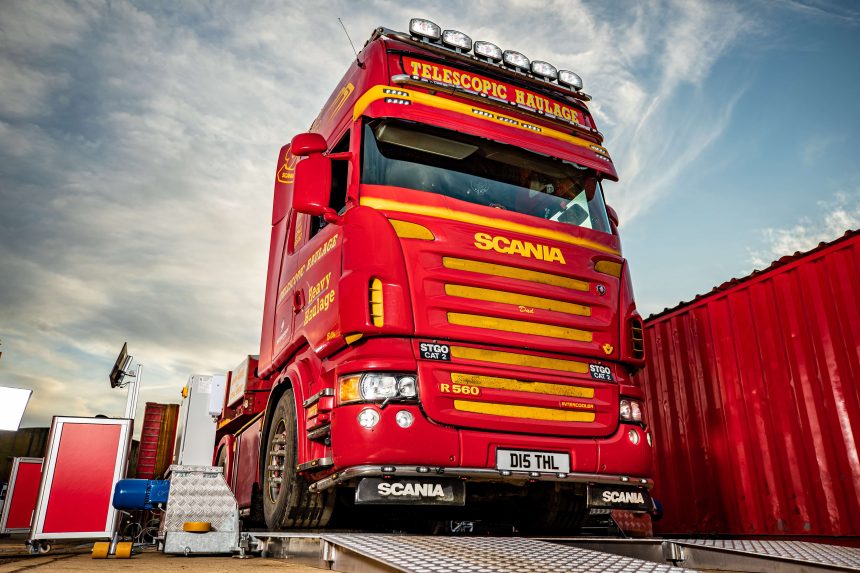There’s a lot to be said about the benefits of in-house equipment.
But if you’re just starting out or planning to expand, the options can seem overwhelming.
So to help you get started, we’ve put together some of the most important early questions you need to ask — so you can move forward with confidence in the equipment you choose.
Here’s what you should be thinking about before you invest in your own brake testers:
1. How heavy are the vehicles you are testing?
Any good brake tester will be designed for a wide range of vehicles — and the wide range of weights that come with it.
But depending on the model and its intended use, there’s usually some variation in the capacities of each type of brake tester.
You might think it all depends on the type of installation, and that a fixed-installation like our In-Ground Brake Tester would come with the highest capacity.
But our Mobile Brake Testers are built for heavy-duty work, too — and the upgraded model can handle just as much weight as our In-Ground Brake Tester.
Here are the limits you need to know:
Type of Brake Tester Axle Load Capacity
In-Ground Brake Tester 6,000kg – 20,000kg
Mobile Brake Tester 16,000kg
Mobile Brake Tester (Upgraded Model) 20,000kg
Class 7 In-Ground Brake Tester 6,000kg
Compact Pit Brake Tester 16,000kg
2. Do you regularly use a vehicle pit?
If you already have a Vehicle Inspection Pit installed in your workshop, an In-Ground Brake Tester could be the most efficient choice.
Although it can be installed as a standalone installation, an In-Ground Brake Tester can also be installed across a pit — helping you to save valuable floor space that can be put to good use for other jobs.
But it’s not just about saving space. It’s also about minimising the downtime and movement of your vehicles.
With an integrated installation as part of your pit, you won’t have to waste time moving vehicles from station to station. Once you’ve got a vehicle in position over the pit, you can carry out multiple services in one location — which means higher efficiency, more throughput, and a reduced risk of creating hazards in your workshop.
3. Do you have a useable outdoor space?
Lots of vehicle workshops have some kind of outdoor space. But we see plenty of companies that aren’t making the most of them — leaving them empty and unused, despite the options they have for outdoor equipment.
So if you’ve got an outdoor area that doesn’t see much action, a Mobile Brake Tester could be a wise investment.
As well as their flexibility, they’re also designed for outdoor use, with a rugged and stable construction that lets you set up for brake testing on all sorts of terrain — from asphalt and concrete to uneven sand, gravel, and dirt.
And because it’s a mobile setup, you’re not committed to a permanent outdoor fixture. If your situation changes and you need to use the space for something else, you can relocate your brake testing to an indoor area and reclaim the outdoor space for use as a car park or courtyard.
With the option of adding a new outdoor workstation, you’re effectively getting a free expansion to your premises — which means a significant boost to how many vehicles you can service.
And if you really want to make the most of an outdoor space?
You can install a Compact Pit that’s designed for the outdoors — giving you a vehicle pit, brake tester, and play detector all in one place.
4. What kind of load simulation do you need?
Starting January 1st 2023, all HGVs will have to undergo the brake test laden, ideally to around 65% of its total maximum weight. And that means you need to choose the right brake tester with the right options for simulation.
Here’s what you need to know:
Type of Load Simulation Type of Brake Tester
Axle Mobile
Chassis In-Ground installed over a pit
Dynamic In-Ground
Hydraulic In-Ground
5. Do you need a flexible workspace?
For almost every workshop out there, floor space is a limited resource — and making the most of it is a top priority.
The needs of your business can change on a weekly basis. And if you don’t have flexibility in the layout of your premises, you could end up missing out on the highest levels of productivity.
So for any workshop that needs to stay flexible, a Mobile Brake Tester is often the best choice.
You can rearrange your workshop layout to improve the routes through your premises and the efficiency of your workflow. Or if your schedule ahead doesn’t involve any brake testing, you can move your Mobile Brake Tester to a position that’s out of the way — or put it in storage until you need it later.
That also makes our Mobile Brake Testers the perfect choice when they’re paired up with our Mobile Column Lifts. The more mobile equipment you have in your toolkit, the more flexible and efficient your workshop can become — giving you more options to adapt and react as the needs of your business change.


























